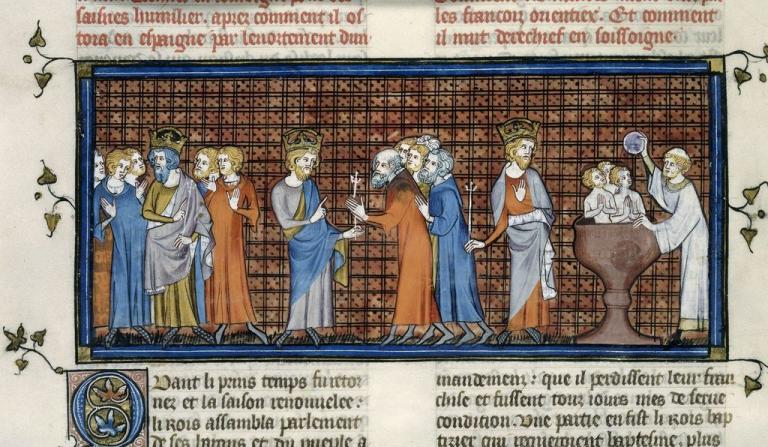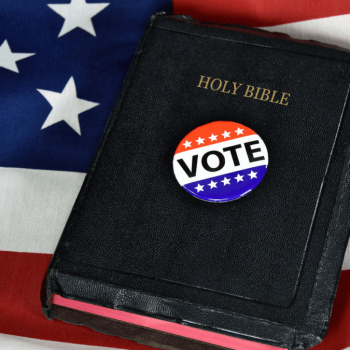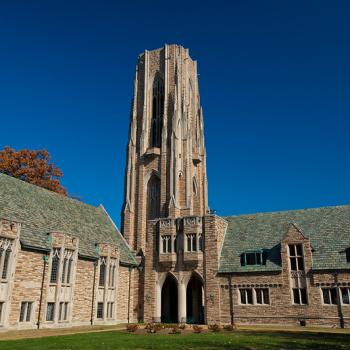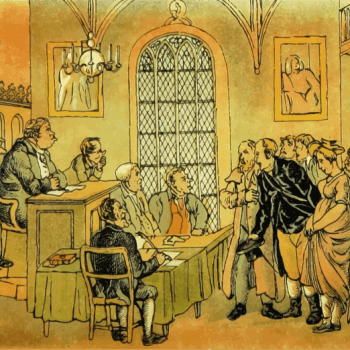Religious conversion generally has to do with spiritual transformation, personal commitment, theological conviction, and the like. But we are now seeing conversions to make a political statement. And yet, these too can grow into genuine faith.
Shadi Hamid discusses the phenomenon in his article for The Free Press entitled Embracing Islam to Own the Libs. He writes about Andrew Tate, the British-American “social media personality” who showcases his “ultra-masculine, ultra-luxurious lifestyle” involving conspicuous consumption of women and alcohol and who promotes a philosophy that he himself describes as “misogynist.” Tate, who runs a sex-cam operation, is currently facing trial in Romania for sex trafficking.
When Tate explained why he chose Islam, he didn’t mention theology, salvation, the Quran, the Prophet Muhammad—or anything to do with spirituality or faith.
“Islam very closely reflects my personal beliefs,” he said in an interview with the Muslim polemicist Mohammed Hijab. “In my personal life, I’ve learned that if you don’t have standards, and if you’re not a strong person who’s prepared to defend his ideas, you’ll get crushed.”
As Tate sees it, where Christianity in the West is weak, undemanding, and devoid of firm rules, Islam is exacting, masculine, and vigorous. It refuses to be mocked, and it refuses to accommodate itself to progressive norms—particularly when it comes to gender and the family. Where Christianity has, in effect, accepted defeat, Islam, Tate said in the same interview, “feels like the last religion on Earth,” the only faith that stands a chance of mounting an effective resistance to moral decay and decline. (Whether Tate himself is moral, or wishes to be, is secondary.)
That criticism of Christianity, by the way, that it is “weak,” is commonplace among right-wing non-believers. But Hadid point out that we are seeing political conversions among Christians as well. While the number of evangelicals continues to grow, research shows that, in his words, “Many of these self-identified evangelicals don’t go to church. They identify as evangelicals because of what it means politically.”
Meanwhile, many conservative intellectuals have been converting in another direction: “As the culture continues to secularize, to become more detached from any underlying moral vision, right-wing intellectuals have responded by gravitating toward more demanding forms of Christianity, particularly Eastern Orthodoxy and Catholic integralism.”
Are such conversions, if they are for political reasons, valid?
It seems to me that a person may join a church or change a religion for many different reasons. For example, getting married, when the couple agree to belong to the same church. Typically, the one who is the least committed to his or her childhood church agrees to accept that of the spouse, which often means going through an adult instruction class, culminating in being received into the church. Is that valid? Of course it is.
Charlemagne conquered the Saxons, requiring them to be baptized or to be killed. Most were baptized. Were those forced conversions valid? This was surely a misuse and misunderstanding of baptism. Charlemagne surely sinned in applying such a brutal method of evangelism. And yet, nevertheless, Christianity “took” among the Saxons. The descendants of those Saxons would be the founders of the Lutheran Church Missouri Synod.
I know people who converted to Catholicism because they came to appreciate Catholic political theory, something lacking in their own evangelical tradition. The truth and value of a religion’s position on politics strikes me as a valid strain of apologetics. Someone with political interests might find Catholic integralism, Calvinist sphere sovereignty, or the Lutheran doctrine of the Two Kingdoms persuasive, and from there go on to learn about and to accept the other teachings of these churches.
I think there is a confusion involving two different meanings of “conversion.” The word can refer to the formal adoption of a religion, particularly in changing from one religion to another. It can also refer to a spiritual transformation. This can be a personal change from unbelief to belief, or from sin to faith.
You can be a member of a particular church or religious tradition, but still be in need of the spiritual sustenance that church or religion, hopefully, can give you. That can come from taking part in that church. The groom-to-be who grudgingly agrees to join his wife’s church, through catechesis, listening to sermons, studying the Bible, worshipping, and receiving the sacraments will likely come to genuine faith in Christ
The Saxons whom Charlemagne forced to get baptized began by resenting Christianity, but, in time, as churches were built in their land and as they were taught the Gospel, they found real faith. One source says this of the defeated Saxon king: “It is related in the tradition concerning Wittekind’s baptism that he subsequently came in disguise to the castle when Charlemagne was celebrating the Christmas festival, and that what he saw and heard there removed the last vestige of his heathen belief and left him a true Christian.” Wittekind didn’t have to be rebaptized when he understood the birth of Jesus at Christmas; rather, his baptism now was fulfilled.
Someone who joined a church because of appreciating its political teaching will soon be exposed to its more important doctrines and practices.
Then again, if someone is in it only for the politics, or the cultural advantages, or to please a spouse, or to gain customers, but never has faith, it will all be in vain.
As for Andrew Tate, if he wants to be a Muslim to own the libs, he will learn more about the religion he is subjecting himself to by experiencing its punishments.
Illustration: Detail of a miniature of Charlemagne holding a parliament; the Saxons submitting to Charlemagne; Charlemagne having the Saxons baptised. Image taken from f. 130v of Chroniques de France ou de St Denis (1332-1350) via PICRYL, Public Domain.


















